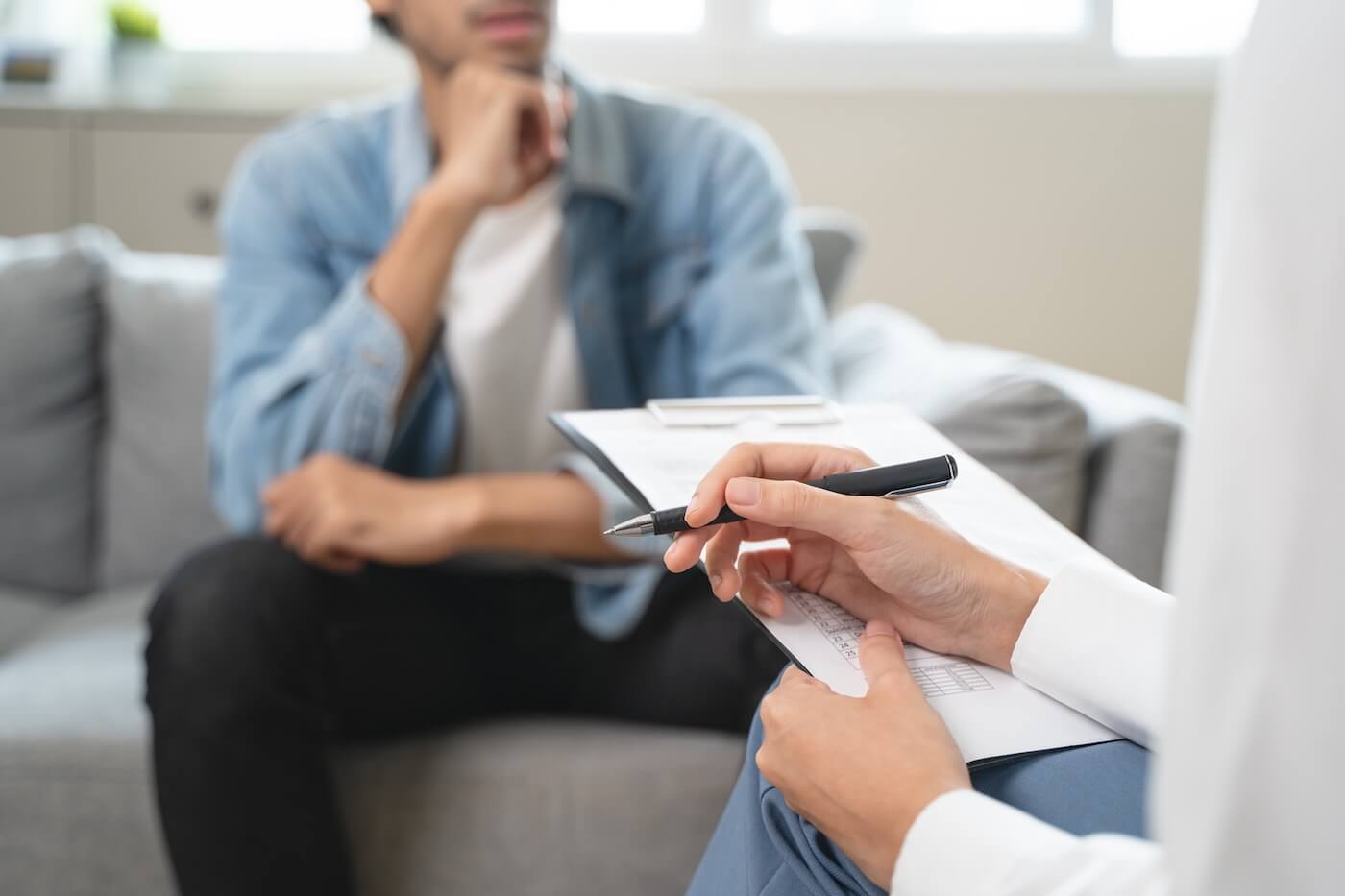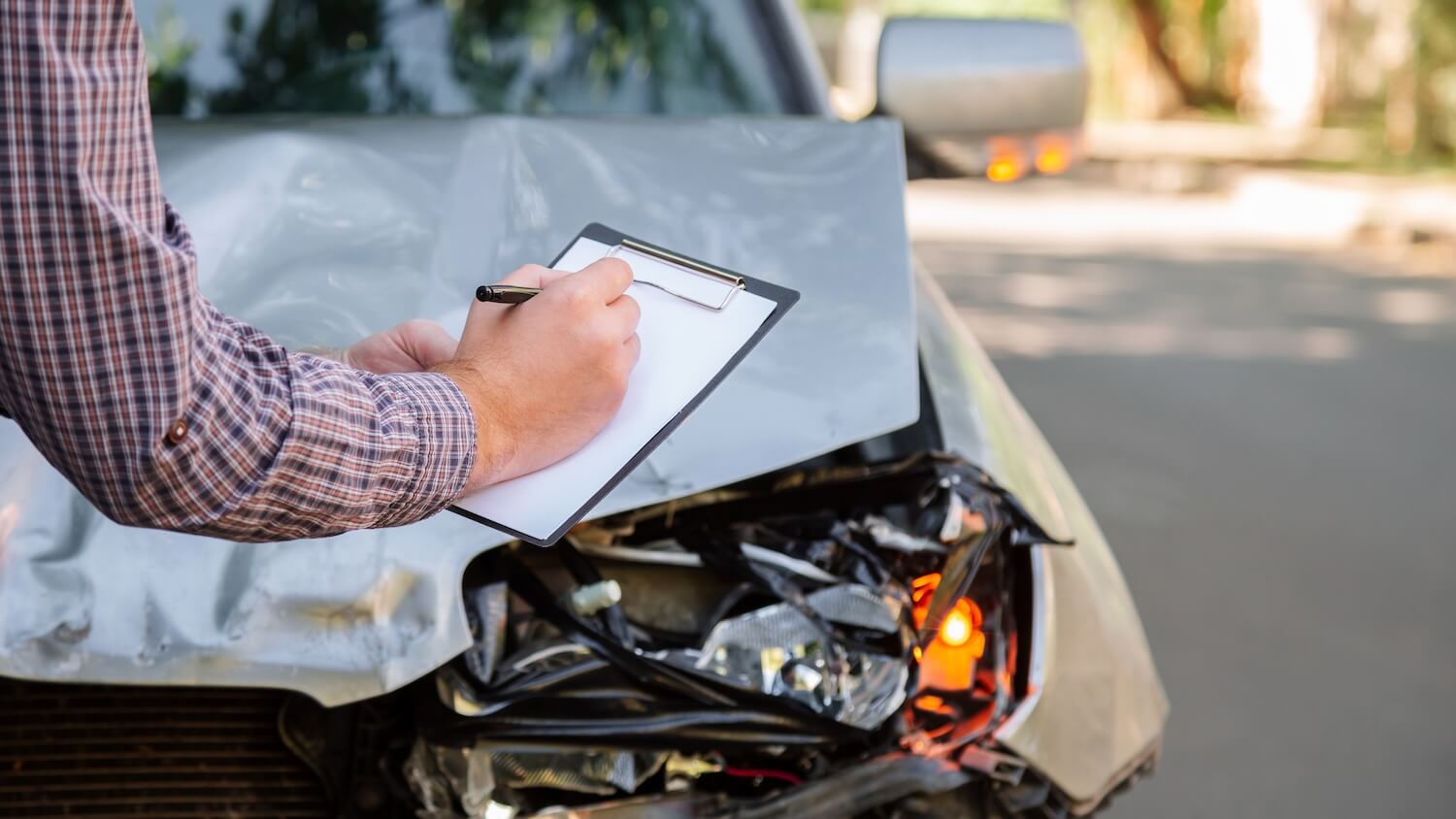The Emotional Toll of Personal Injury: PTSD and Anxiety After an Accident

Written by Molly A. Ullrich

Personal injury doesn’t just result in physical pain—it can also lead to severe emotional consequences, including PTSD and anxiety. Many accident survivors are surprised by the psychological symptoms that linger long after the physical wounds begin to heal. This emotional impact can be just as challenging as any medical recovery.
Smith & Weidinger, PLLC understands that trauma from an accident often leads to significant emotional distress, making daily life more difficult. Symptoms like nightmares, panic attacks, and persistent fear can affect work, relationships, and overall wellbeing. Recognizing these symptoms is a crucial step in seeking proper support and moving toward recovery.
Understanding PTSD After a Car Accident
Individuals may experience persistent psychological distress after a car accident or other traumatic injury. This distress can manifest as post-traumatic stress disorder (PTSD), anxiety, and new or worsening emotional struggles that affect daily life.
What Is PTSD and How Does It Relate to Personal Injury?
PTSD is a mental health condition that can develop after exposure to a traumatic event, such as a serious car accident or injury. People with PTSD often have intrusive memories, nightmares, or flashbacks related to the incident.
Other symptoms may include emotional numbness, avoidance of reminders, and feeling constantly on edge. Unlike general stress responses, these symptoms last for weeks or months and can severely disrupt normal routines.
Victims of car accidents and other personal injuries are at increased risk for PTSD. According to clinical research, around 10-40% of car accident survivors display signs of PTSD within months of the incident.
Recognizing Anxiety Disorders Following an Accident
Anxiety after an accident is common and can present in different ways. Some people develop general anxiety, experiencing frequent worry or tension unrelated to the specific event.
Others may notice specific fears, such as driving or traveling in vehicles, which can interfere with returning to normal activities. Symptoms can include restlessness, racing thoughts, and difficulty concentrating.
Common signs of accident-related anxiety:
| Symptom | Description |
| Hypervigilance | Always feeling “on guard” |
| Physical tension | Muscle tightness, headaches |
| Sleep problems | Difficulty falling or staying asleep |
| Avoidance | Staying away from reminders |
Severe anxiety may warrant assessment by a mental health professional, especially if daily functioning is affected.
Personal Injury Emotional Impact
The emotional impact of accidents often extends beyond immediate trauma. Many people find their relationships, work, and hobbies affected by mood changes, irritability, or persistent fear.
Social withdrawal is common, and some may avoid family gatherings or public places out of discomfort or nervousness. Routine tasks like driving or shopping can become overwhelming if memories of the accident are triggered.
Work performance may decline due to poor concentration or frequent absences. Coping with these challenges is a significant part of recovery for many who experience PTSD or anxiety after an accident.
The Lasting Emotional Impact of Personal Injuries
Personal injuries can result in persistent mental health challenges, including anxiety, depression, and post-traumatic stress disorder (PTSD). These emotional consequences can continue long after the physical wounds have healed.

Long-Term Psychological Effects
After experiencing a personal injury, individuals often face long-lasting psychological symptoms. PTSD may develop, including flashbacks, nightmares, and severe anxiety tied to the accident. Many sufferers report feeling emotionally numb or detached from others.
Common emotional impacts include:
- Chronic anxiety or panic attacks
- Depressive symptoms such as hopelessness or prolonged sadness
- Intrusive memories or nightmares about the event
- Feelings of anger or irritability
Recovery is often unpredictable. Symptoms may persist for months or even years, and without support, some individuals have difficulty returning to daily routines.
The Connection Between Physical Injury and Emotional Distress
Physical injuries can directly influence emotional health. Pain and limitations caused by injuries often lead to increased stress, frustration, or low self-esteem.
For example, people coping with limited mobility or scarring may experience negative changes in body image and a reduced sense of independence. Ongoing medical treatments, surgeries, or therapies can cause additional emotional strain.
A table outlining common links:
| Physical Experience | Emotional Impact |
| Loss of mobility | Anxiety, frustration |
| Chronic pain | Depression, irritability |
| Visible scarring or disability | Low self-worth, shame |
| Repeated medical procedures | Stress, helplessness |
These links highlight how deeply connected physical and emotional recovery can be after a personal injury.
Impact on Relationships and Work
Emotional changes after a personal injury can affect relationships and occupational life. Some may withdraw from family and friends, leading to social isolation. Loved ones sometimes have difficulty understanding the ongoing emotional struggles.
In the workplace, concentration and memory problems can reduce productivity. Individuals may need modified duties, reduced hours, or long absences.
Notable effects include:
- Communication difficulties with colleagues or family
- Decreased work performance or absenteeism
- Increased conflict or misunderstandings at home and work
These challenges can further complicate the emotional toll of injury, making support and understanding essential for long-term adjustment.
Legal Support and Compassionate Guidance
Understanding and managing the aftermath of a traumatic accident can be difficult, especially when complex legal matters are involved. Professional guidance helps accident survivors secure their rights and cope with emotional obstacles such as PTSD and anxiety.
Understanding Your Legal Rights After Traumatic Injuries
Accident survivors may be entitled to compensation for both physical and emotional damages. This includes payment for medical bills, mental health treatments, lost wages, and pain and suffering.
Filing a claim can seem overwhelming, particularly when dealing with mental health challenges. Knowing the statutes of limitations, types of claims, and available compensatory damages is essential.
A licensed attorney can explain these legal rights clearly and address any necessary documentation. This clarity can make the process less intimidating and help protect the individual’s interests.
| Legal Right | Description |
| Compensation | Covers medical expenses, therapy, lost income |
| Filing a Claim | Must follow set deadlines and procedures |
| Emotional Damages | Recognizes certified conditions like PTSD, anxiety |
The Importance of Legal Assistance for Emotional Well-Being
Seeking legal help can reduce some of the stress following an accident. An attorney manages communication with insurers, gathers evidence, and helps organize mental health documentation.
Support from a legal professional allows clients to focus more on their recovery. It lessens the burden of paperwork and negotiations, which can worsen anxiety or trigger PTSD symptoms.
A qualified lawyer can also recommend experienced mental health resources. This network extends compassionate care beyond legal advice.

How Smith & Weidinger, PLLC Supports Clients Through Trauma
Smith & Weidinger, PLLC offers specialized support for clients facing the emotional aftereffects of accidents. Our attorneys help document PTSD and anxiety for claim purposes and connect clients with trauma-informed health providers.
Clients at Smith & Weidinger receive regular updates and clear explanations of each step in their cases. This transparency helps reduce uncertainty—a common trigger for anxiety after accidents.
Our firm tailors its approach for each client, ensuring that both legal and emotional needs are addressed. Dedicated staff members are available to answer questions and provide reassurance throughout the entire process.
Practical Strategies for Coping and Recovery
Recovering from personal injury often involves a mix of professional treatment, personal action, and reliable social support. Addressing mental health challenges like PTSD and anxiety is essential for overall healing.
Seeking Professional Help and Therapy
One of the most effective strategies for coping with trauma after an accident is to seek out licensed mental health professionals. Psychologists, psychiatrists, and therapists can provide assessments and recommend evidence-based treatments such as Cognitive Behavioral Therapy (CBT), Eye Movement Desensitization and Reprocessing (EMDR), or medication when appropriate.
Therapists may teach skills like exposure therapy or mindfulness exercises to manage symptoms and triggers. Regular sessions create a safe space for expressing feelings and processing difficult memories.
For many, professional guidance also helps them understand that emotional responses are normal after trauma. Consistent attendance allows for progress tracking and adjustment of strategies as recovery continues.
Important Points:
- Consider trauma specialists.
- Explore both individual and group therapy options.
- Keep open communication with your care team.
Building a Support Network
Social support is crucial for emotional recovery after an accident. A trustworthy network can include family, friends, colleagues, and support groups for injury survivors. They provide encouragement, listen without judgment, and help reduce isolation.
Sharing experiences in safe environments—such as in-person meetings or online forums—can help individuals see they’re not alone. Loved ones can also assist with practical needs, such as transportation, meals, or attending appointments.
It’s helpful to communicate concrete needs rather than feeling obligated to cope alone. Writing down a list of tasks for helpers or regularly connecting with a trusted friend can create continuity and a greater sense of safety.
Ways to build support:
- Attend local or virtual support groups.
- Stay in regular contact with key people.
- Set boundaries when necessary to avoid overwhelm.
Empowering Yourself During the Legal Process
Legal proceedings can add stress, especially if the injury was caused by someone else’s actions. Taking proactive steps can reduce anxiety related to claims or court appearances.
Staying organized by keeping all medical records, communication, and legal documents in one place helps maintain clarity. Understanding the process through meetings with a personal injury lawyer lets individuals know what to expect and prepares them for each step.
Many find it useful to prepare questions in advance for attorneys or adjusters. Advocating for oneself, or having a trusted representative attend stressful appointments, can lessen feelings of helplessness.
Tips:
- Keep detailed records of symptoms, treatment, and communications.
- Ask your legal team for status updates.
- Practice self-care routines before and after legal events.
Note: The information provided in this blog post has been compiled from publicly available and secondary sources. While we strive for accuracy, some details may become outdated or contain inadvertent errors. If you believe any information is incorrect or requires updating, please contact Smith & Weidinger so that we may review and make the appropriate corrections.
Disclaimer: This blog post is for informational purposes only and is not intended as a solicitation for business. The photo used is not from the scene of the incident described. Viewing this content does not create an attorney-client relationship with Smith & Weidinger. If you have been injured in an accident, please seek immediate medical attention and then consult with a qualified attorney to discuss your legal rights and options.










